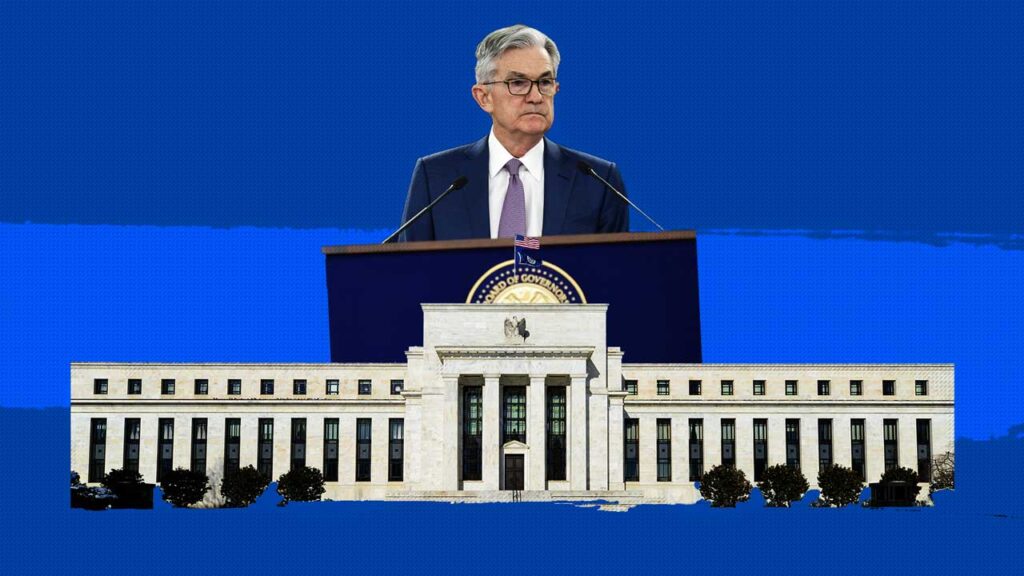You might not know Jerome Powell, but he knows you. He knows how Americans think, and the crucial role that each of us will play in bringing down inflation. As a former attorney, investment banker, US Treasury advisor, and now Chairman of the Federal Reserve, Mr. Powell has worn many hats throughout his career. Recently he’s tried on a new one – psychologist. The Fed Chairman took the helm of the U.S. central bank back in 2018 with a booming economy and strong employment. Since then, as we all know, things have changed drastically. Now Mr. Powell is desperately trying to tap into the American psyche to tame inflation, and get the economic ship back on course.
Interest Rates & The Fed
The Federal Reserve is responsible for setting the interest rates at which big banks lend money to each other. This predetermined interest rate then trickles down throughout the lending industry into things like mortgages, car loans, and credit card interest. When a bank’s borrowing costs go up, they turn around and raise borrowing costs for everyone else. This makes taking out a loan more expensive and less attractive for companies and consumers alike. This is why the Fed raising interest rates is seen as a lever for economic tightening. With money now more expensive (I.e. 6% interest on 30 yr mortgages), less people will borrow, and the economy will likely slow down. So what’s your angle Mr. Powell? How will higher borrowing costs and a slowing economy help with our inflation problem?
Mr. Powell has taken every opportunity he can to publicly state that the Fed will get inflation under control. He needs Americans to believe that prices will be lower in the future in order to bring prices down today. Think about discretionary purchases like cars, appliances, building materials for a renovation, or even a new home. At some point in your buying decision you will likely think about whether now is a good time to buy versus the future. If Americans believe that the same goods will be cheaper in the future, there is a higher likelihood that they will delay their purchase. If American’s delay purchases today, near-term demand will come down along with prices. The opposite is true if consumers think prices will be higher next year – more people buy now, prices go up, and inflation remains high.

The Market's Reaction
Despite not having mentioned anything regarding market performance at this point, rising interest rates are the underpinning of this year’s stock market sell-off. As a result of the Fed’s drastic tightening, companies are experiencing diminished growth and a dulled outlook. Professional investors are pricing in the fact that the Fed’s plan could be successful, while also leading to a recession. This has been reinforced by Mr. Powell who has made it clear that he is willing to create near-term market pain in order to avoid a period of prolonged inflation.
Although we are likely to see a negative year for the market, the hope for long-term investors is that we come into 2023 with a better grip on inflation. This would allow the Fed to begin lowering interest rates, and potentially give rise to another expansionary cycle. The biggest question mark is how long it will take the Fed’s tightening to set in, and ultimately lower prices. Chairman Powell knows that bringing a swift end to high inflation hinges on Americans believing it. Which is why, through public statements and rate increases, the Fed is trying to get in your head.


